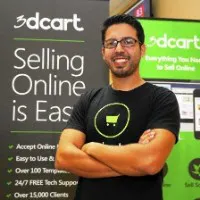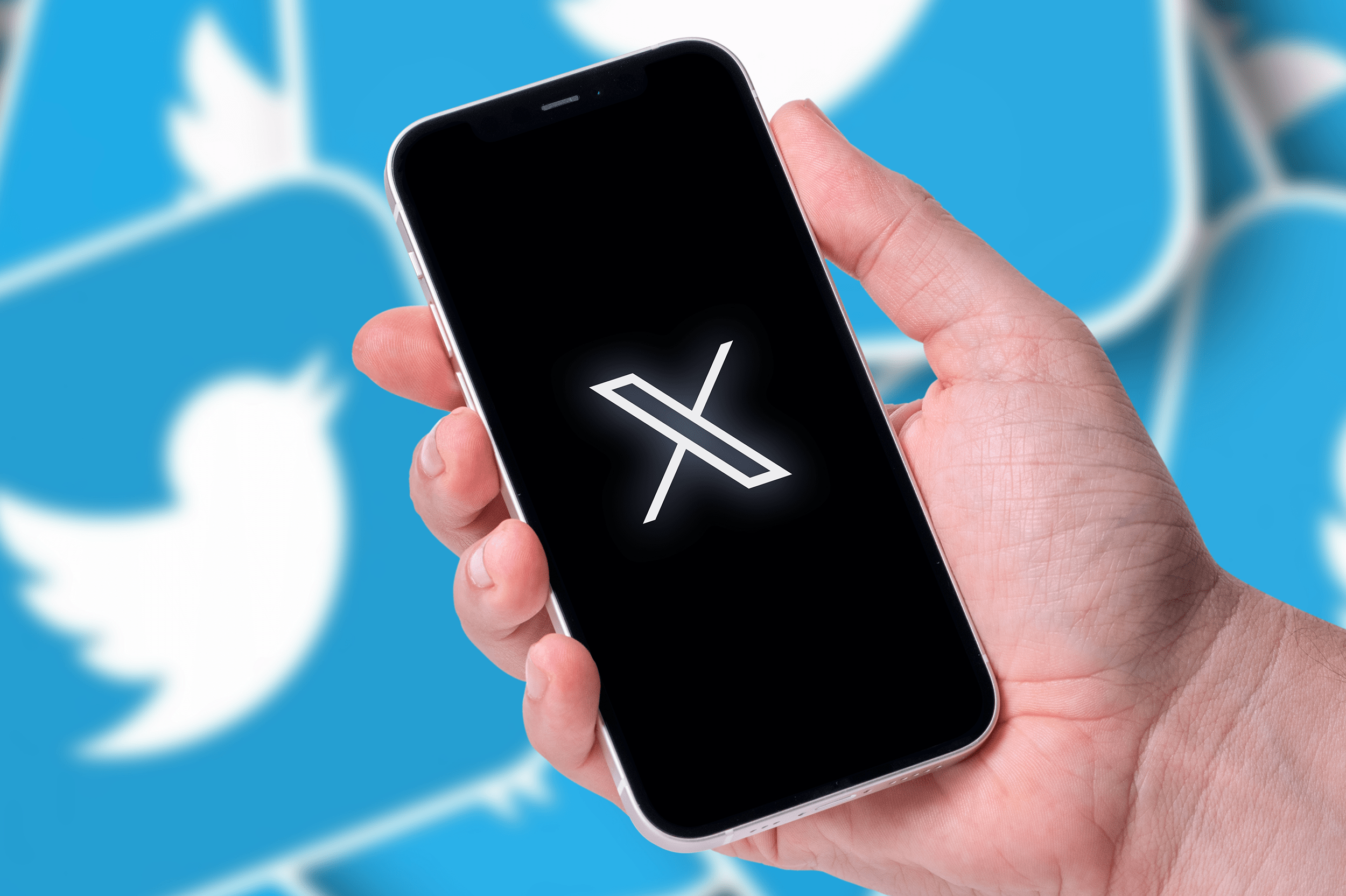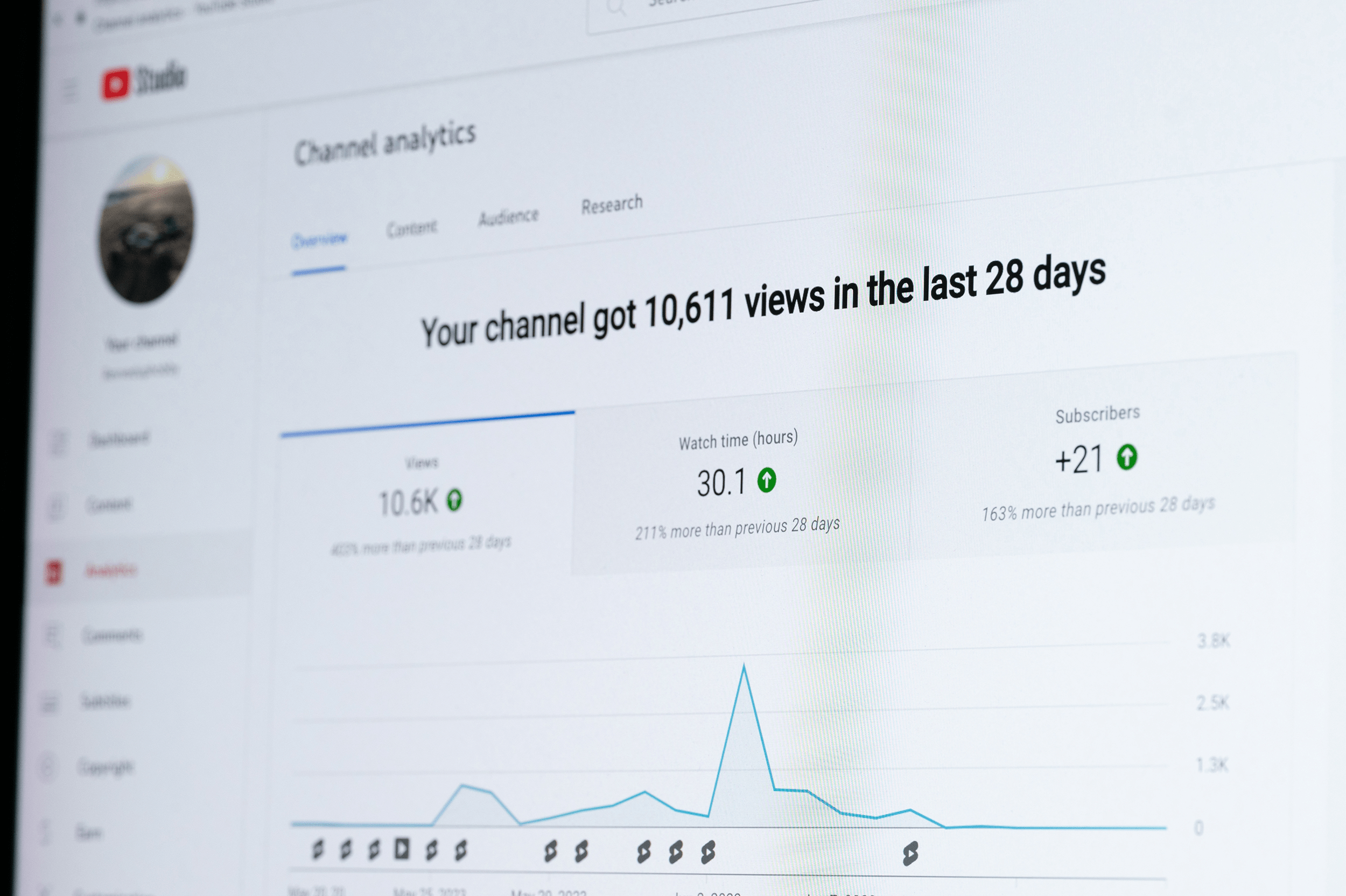品牌和行銷人員繼續依靠Facebook平臺來覆蓋他們的受眾,儘管Facebook上的有機影響力已經不是以前了。由於Facebook旨在為使用者提供一流的體驗,Facebook演算法經歷了許多變化,其中一些是劇烈的。有一點是清楚的:它需要的不僅僅是一張時髦的封面照片來吸引喜歡併產生參與度(儘管設計精良 Facebook 封面相片 仍然很重要!
隨著視頻的出現,作為 頂級社交媒體行銷趨勢,當 Facebook 演算法開始在新聞源中優先處理視頻(尤其是即時視頻)時,這並不奇怪。品牌適應,視頻迅速成為 將 Facebook 用於業務的最明智方式.
但Facebook演演演算法是一個不斷發展的謎團,很像谷歌搜索演演演算法,導致許多誤解,有時,對品牌和營銷人員來說,是徹頭徹尾的混亂。是否剛剛進行了 社交媒體審計 並發現了一些令人失望的指標,或者你剛剛開始Facebook行銷,我們想説明你瞭解神秘的Facebook演演演算法是如何滴答作響的。
為此,我們聯繫了 Facebook 專家和社交媒體專業人士小組,要求他們回答這個問題:
"Facebook 演演算法中最容易被誤解的方面是什麼?"
認識我們的 Facebook 專家和社交媒體專家團隊:
請繼續閱讀,瞭解有關 Facebook 演算法的常見誤解,以及您需要了解的內容以獲得更好的結果。
 蒂安娜·安德森
蒂安娜·安德森
@TiAnnaMae16
蒂安娜·安德森是戰略營銷顧問和文案撰稿人。 安德森創新行銷.她説明美容師和小企業主確定他們獨特的客戶匹配,並設計一個計劃,以建立知道,愛和信任因素,使他們成為終身客戶。
Facebook演演演算法中最容易被誤解的一個方面是,您可以在個人個人資料上發佈與業務相關的消息,並覆蓋更多人。為了擊敗該演演演算法,許多小企業主只需直接在其個人檔案上發佈業務查詢、推銷和促銷。似乎更多的人已經看到了你的職位;然而,很多時候,這隻是一種幻覺。在您的個人檔案中,有你的家人、高中朋友和大學夥伴,他們通常只是樂於看到你在做什麼,不一定是你業務的客戶。此外,在您的個人個人資料上發佈促銷內容會違反 Facebook 的服務條款,如果您的帖子沒有獲得多少參與度,該演演演算法甚至可以開始以較低位置對您的個人個人資料進行排名。更糟糕的是,如果 Facebook 確定您一直在使用您的個人個人資料來推廣您的業務,那麼他們可能會刪除或鎖定您的個人資料,而您會丟失您的所有圖片和聯繫人。
"這個故事的寓意:專注於經常在業務配置檔上發佈可共用的內容,這些內容與受眾產生共鳴,您不必擔心該演演演算法。
 內特·馬斯特森
內特·馬斯特森
內特·馬斯特森是 楓葉整體,致力於無殘酷、自然和可持續的個人護理產品的公司。
從數位、參與度和股票數據是 Facebook 演演演算法中最重要的因素。這在很大程度上是因為它導致所有其他種類的演演演算法友好活動,如註釋和共用,它們往往具有連鎖反應。雖然Facebook優先考慮這些帖子,但它們也通過產生評論、反應和更多觀點而有機地獲得吸引力。理想的獨角獸帖子將是一個發人深省和娛樂的短片。這個甜蜜的點組合張貼在週三下午12點左右或週四下午1-2點之間,讓你在新聞源的頂級互動時段的最佳拍攝。
 托尼·埃裡森
托尼·埃裡森
托尼·埃裡森與 商店,商業和辦公用品的在線市場領導者;慶祝超過20年的行業。他們攜帶超過100萬件辦公產品,並不斷擴大其品種近10萬綠色和環保專案。商店擁有您業務所需的一切。
"似乎有一件事困擾著許多粉絲頁面擁有者,那就是了解為什麼他們的網頁似乎接觸較少他們的追隨者。2018 年,Facebook 改變了演演演算法,將更多使用者希望看到的內容列為優先事項,而不要使用他們不希望看到的內容。這通常意味著更多的視頻和內容片段。這也意味著顯示更少的鏈接和文本僅帖子。
"平臺度量覆蓋範圍的計算方式也不同。過去,每次用戶登錄時,Facebook 都會載入大約 250 個帖子。無論使用者是否實際向下滾動以查看您的帖子,這些都被視為頁面覆蓋面的一部分。今天,只有當用戶實際滾動並在時間線中看到您的帖子時,才會計算您的帖子。問題在於,如果您試圖將分析與前幾年的性能進行比較,您的數據現在就偏斜了。
 埃萊莎·鐘斯
埃萊莎·鐘斯
Elesha Jones 擁有傳播學學士學位,熱衷於幫助企業成長。擁有20年營銷經驗,本運營總監在 社會覆蓋機構 監督品牌經理和員工,協助客戶構建在線社區的旅程。
Facebook 的演演演算法會更多地將您的內容顯示給與您互動的人和與您互動的人。因此,如果你想獲得更多的接觸和曝光,你必須與更多的人接觸。否則,只有相同的人會一遍又一遍地看到相同的內容。
"雖然這是一個簡單的概念,但我相信這是Facebook演演演算法中被誤解最多的一個方面。許多公司認為發佈最具創意的內容是最重要的方面。但是你可以擁有最吸引人的帖子,但是如果沒有一個人參與它,你就浪費了時間和金錢。但是,如果您發佈一個 50 人回應或分享的對話開始問題,您就已獲得大獎。你甚至只需要20秒的時間創建那個帖子,但這並不重要,因為你的Facebook受眾參與了它。
"除了提出問題外,還有其他方法可以提高參與度。使用講述故事的圖像,無論是悲傷還是有趣,都會吸引觀眾,並鼓勵他們與他人分享。展示公司的個性是讓人們回復您帖子的好方法。如果你還沒有建立商業個性,現在就開始吧。最好的策略之一是密切關注你的粉絲喜歡、分享和評論什麼樣的帖子。
"在社交媒體參與方面,還有許多其他方法。但首要的應該是參與。無論你如何做,你的帖子不會被新人看到,如果你不參與。Facebook的演演演算法就是不允許的。
 克裡斯·休斯
克裡斯·休斯
克裡斯·休斯是高級內容營銷經理 ProjectManager.com.
Facebook演算法變化最被誤解的方面是,Facebook不再真正關心讀者在品牌頁面上分享的內容花費的時間,而是關心他們如何與內容交互。喜歡帖子也不再重要了。讚現在被視為一個更膚淺的指標,演演演算法轉而關注並獎勵那些能夠說服讀者和關注者通過評論和分享與帖子進行高品質互動的品牌。
"由於 2018 年秋季發生的朋友和家人更新,評論和股票在 2019 年也處於更高的溢價,該更新旨在確保 Facebook 使用者從朋友和家人那裡看到的內容比從品牌和/或看到的內容更頻繁。 發佈者 他們可能會跟隨平臺。您的關注者分享和評論您的內容的量越高,Facebook 眼中就會看到您的內容越有利。
因此,專注於構建可共用的內容,從而推動討論,而不僅僅是對轉瞬即逝的喜歡的眼糖果。
 萊蘭·裡德
萊蘭·裡德
萊蘭·裡德是位於匹茲堡的數字廣告主管 直接線上行銷.Reed 代表 DOM 的大型客戶清單管理代理廣告買家團隊。里德是一位數字行銷行業資深人士,他經常向 DOM 的 Facebook 廣告和谷歌廣告提供涉及的文章。 部落格 .
在過去十年中,Facebook的演演演算法,至少是有機的,對當前和熱門新聞項目給予了越來越優先的考慮。當然,新聞對Facebook來說既是祝福也是禍根。
"Facebook很可能意識到,其使用者正在以巨大的速度消化熱門新聞。最近的選舉顯示Facebook是在線新聞的頭號來源。Facebook 意識到,如果它不能作為趨勢新聞的門戶,其他人就會。事實上,Twitter的增長很可能因Facebook果斷地改變其演演演算法而受阻,使其更加支援熱門話題。
在進行這種廣泛更改之前,Facebook 沒有區分"靜態內容"和"趨勢內容"。
"2010 年,在 Facebook 新聞源中看到諸如'50 種椰子油方法'等文章佔據主導地位並不罕見。Facebook的演算法變化很可能被嚴重剔除了這些靜態內容,代之以佔主導地位的「新聞」新聞提要。
早在 2018 年初,Facebook 就聲稱將恢復"顯示更多朋友的狀態」。。從我自己的新聞提要來看,我不敢相信他們堅持這個概念。
 詹姆斯·羅賓遜
詹姆斯·羅賓遜
詹姆斯·羅賓遜是營銷顧問 標誌性天才 教小企業主、自由職業者和企業家如何以生產高質量的線索為生。
"我喜歡這個問題,我有一個兩部分的答案。首先,Facebook是所有關於社會參與,無論演演演算法的變化有多大,這是一個永遠不會改變的方面。
「只要您的內容參與,那麼您將在 Facebook 上取得成功。問題是,大多數公司認為銷售他們的產品是有吸引力的,但事實是,它不是。
"這讓我想到我的第二點,這與演算法無關——但大多數公司將Facebook廣告表現不佳歸咎於該演演演算法。
"是什麼可能導致您的廣告吸吮?著陸頁!!!大多數人不知道Facebook會收取更多的錢,以將其客戶從Facebook上帶走,讓他們發送到您的網站或著陸頁。是的,當你在Facebook上投放廣告時,你會去追趕它的顧客。Facebook 的工作是盡可能長時間地將這些客戶(使用者)保留在其平臺上。為什麼??因為他們就是這樣賺錢的。所以,如果你想投放廣告,讓人們去你的網站,Facebook將讓你付出代價。這不是演演演算法問題,這是一個戰略問題。只是要考慮的一件事。
 阿莉西亞·耶爾維斯
阿莉西亞·耶爾維斯
阿莉西亞·耶維斯是一位屢獲殊榮的營銷人員和設計師。她是創始人和創意總監 阿莉西亞·耶維斯創意:一家以澤西海岸為基地的營銷和設計機構。她在藝術行銷行業工作了超過15年,為數百名藝術家和作品創作內容。她是《票房雜誌》前線獎的獲得者。
"我試圖讓客戶記住的是,雖然 Facebook 的演演算法在不斷變化,但有一件事永遠不會改變:它從來不是關於您的品牌、業務或產品;這隻是關於你的社區。Facebook希望讓使用者盡可能參與Facebook平臺本身,並希望他們盡可能多地在Facebook平臺內花費太多時間。他們想要能夠激發有意義的對話和參與的內容。不僅如此,他們希望這些對話有機地發生。他們不想獎勵那些要求喜歡、分享或評論的內容。他們將適當地獎勵那些自然獲得這些回應的內容,因為他們認為它更真實。內容創作者應始終以受眾的行為和喜歡/不喜歡的方式工作,而不是他們試圖推廣的產品、服務或活動。向後工作,並解決 X。
 加布·埃爾南德斯
加布·埃爾南德斯
加布·埃爾南德斯目前是數字營銷總監 ROI Swift 和帽子愛好者他的經驗使他從為迪士尼設計和執行廣告研究,到在Facebook的全球營銷解決方案團隊工作。
"使用者和品牌經常錯誤地認為,與他們有聯繫的每個人都會在新聞源中發佈帖子。現實情況是,Facebook 根據參與度和關係對使用者最親近的"好友"和"主頁"進行索引,並用它來從這些來源提供更多內容。現在, Facebook 已經公開表示, 新聞源優先考慮來自朋友和家人的內容, 而不是品牌和 發佈者 ,該演演演算法挑戰品牌創建更好的內容或更好地定位他們的帖子比之前。我們從品牌那裡聽說,他們不想投放任何主頁帖子互動廣告,因為感覺支付覆蓋面只是支付他們過去免費獲得的東西,但他們忽略了支付參與費提供了一個機會,重新接觸使用者誰可能已經失效,以前沒有看到他們的新聞源和覆蓋,從來沒有保證開始。
 Allison 哈代
Allison 哈代
艾倫·哈代是造物主 媽媽社區 在 Facebook 和業務戰略家為 6 位數的媽媽在 AllisonHardy.com.
"Facebook演演演算法最被誤解的方面是:它並不反對你。
"也許,在網络創業領域,最讓我磨練的因素之一是聽到企業家們說Facebook演演算法對他們不利。這根本不是事實。Facebook演算法青睞的是好,高質量的內容,別人認為有價值的。如果您發佈的內容實際上對受眾很重要,那麼您就沒什麼可擔心的了,您實際上應該期望您的參與度、評論和/或分享量激增。
底線:如果你要抱怨演演演算法對你不利,找出演演演算法實際上喜歡什麼,並相應地調整你的內容。
 特裡娜·桑德斯
特裡娜·桑德斯
@trinaapproved
Trina Sanders 對數位化的所有事物都充滿熱情,並不斷尋求這樣的問題:"我如何讓社交媒體為我工作?她也是數位行銷經理 國際勞工查找器 • 藍領人員編製的領導者。
Facebook演演演算法最被誤解的一個方面是,它將為你完成所有繁重的工作。Facebook遠非一套集它,忘了它類型的營銷平臺。實際上恰恰相反。馬克·紮克伯格甚至承認,隨著2018年公司的一些變化,企業將不得不更加努力地工作,以贏得客戶的注意。
"是的,Facebook 的演算法確實有助於實現您的社交行銷目標,但回報是有代價的,無論時間還是金錢。我們向 200 多個辦公室解釋,這些辦公室現在開始將 Facebook 融入到他們的工作流程中,與大多數成功案例一樣,投入的時間越多,您獲得的價值就越大。做一些能引起受眾共鳴或值得分享的內容,可以向Facebook的演算法發送信號,將帖子傳播到類似的受眾群體。但就在這一點之後,您已經盡了最大的努力來提升或共用您的網路。
 香農·道爾
香農·道爾
香農·道爾是社交媒體專家 第 1 頁 解決方案,有限責任公司.她創建並執行個人化的社交行銷策略,並為法律、醫療和牙科領域的客戶提供付費廣告活動。她畢業於拉德福德大學,獲得BBA行銷學位。
為 Facebook 創建和發表內容的一個經常被誤解的方面是,它可以在一周中的任何一天隨時發布,以便將個人資料視為活動。事實是,活躍的 Facebook 個人資料應該有一個堅實的社交媒體策略,包括內容比率,以確保發佈是頻繁和一致的。
發佈頻率和一致性都是成功社交媒體戰略的關鍵。當您一致發佈時,Facebook 的演演演算法將一致地提供您的內容,尤其是那些參與您的內容的使用者。如果您不一致發佈,Facebook 將不會一致地提供您的內容,因為它將推送到使用者源的底部。眾所周知,行銷的第一步是意識。如果您的信息從未被看到或傳遞,則受眾無法知道。
在每個月初得出一個內容比率,例如每天發佈一次,每隔一天發佈一次,或者每三天發佈一次。這將有助於保持演演演算法的快樂,並將您的內容交付給使用者,以便他們可以參與它。
通過保持一致的發佈策略,使用者將保持參與度的一致性。如果活動在短時間內溢出,使用者可能會失去興趣。通過正確間隔內容或更一致地發佈內容,讓使用者保持參與。如果使用者知道您每天發佈的內容,他們希望看到這些內容,但如果他們不知道會發生什麼,並且內容被淹沒,他們可能會失去興趣。
 瑪麗·拉蒙德
瑪麗·拉蒙德
隨著對內容行銷、SEO和社交媒體的日益熱愛,瑪麗自豪地戴上了她的內容營銷專家稱號。 達什本.她很樂意隨時與行銷人員分享她的專業知識。
"Facebook演演演算法中最容易被誤解的一個方面是,數量現在在社交成功中起的作用要小得多。它過去很簡單:越多越好,對嗎?要有一個良好的Facebook策略,你需要每天最多發佈3個帖子,因為你發佈得越多,成功的機會就越大。但現在,遊戲改變了。Facebook 會考慮消費者反應的可預測性,並根據其獲得積極反應和分享的能力對帖子進行評分。您不僅需要頻繁發佈,還需要確保您的資訊、語氣、定位和參與度也不錯。與谷歌(不再涉及關鍵字數量)一樣,Facebook的演演演算法一天天越來越智慧,你需要相應地調整自己的行為和策略。
 帕維爾·格茨貝格
帕維爾·格茨貝格
帕維爾·格茨伯格是 弟子.
"在 Facebook 上接觸受眾變得越來越難了。新聞源充滿了點擊誘餌、假新聞和干擾,以至於Facebook不得不使用其EdgeRank演演演算法來找出向誰展示哪些帖子。
"這個演算法總是在變化。就在最近,Facebook 改變了其演算法的優先順序和向群組提供內容的方式。因此,您現在發佈帖子時,您的 Facebook 受眾將僅佔 1-2%,因此您很難向社區提供引人入勝的內容和消息。
 賈尼斯·瓦爾德
賈尼斯·瓦爾德
賈尼斯·瓦爾德是 Blogger,博客教練,作家和自由撰稿人。
"Facebook 演演算法被誤解了。人們相信使用Facebook頁面不再是提升在線形象的一種方式。然而,Facebook希望讓企業家在Facebook業務頁面中提升他們的影響力。他們要求的只是訂婚。如何?視頻、問答、競賽和贈品 —— 任何有助於人們參與網頁活動的東西。邀請他人也喜歡您的頁面。所有這些都將提高參與度,並請 Facebook 演演演算法為您的網頁提供更高的可見性,並提高您的品牌。
 梅根·扎萊斯基
梅根·扎萊斯基
梅根·扎萊斯基是紐約精品公關公司的社交媒體協調員 先驅報.她每天致力於優化所有平台的客戶社交內容,同時實施新的品牌戰略。
"Facebook 演演算法中最容易被誤解的方面是有意義的參與背後的權重。是的,我們都知道,在新聞源中,更多引人入勝的帖子(即帶有評論、分享和讚的帖子)排名較高,但大多數人不知道的是 Facebook 如何計算互動可能具有多大意義。對有意義的互動進行排名,可以消除 Facebook 上的誘餌帖子,這些帖子要求使用者在評論部分標記好友,最終將帖子排名更高。其中許多策略不再起作用,因為Facebook的演演演算法現在完全降級誘餌帖子。那麼,Facebook如何重視有意義的互動呢?將相關內容推送給使用者,並針對使用者興趣評估交互。如果 Facebook 認為帖子在您的興趣清單中得分很高,則互動的權重更高。
 尼克應該
尼克應該
尼克應該是一個文案撰稿人,在線媒體戰略家,Spotify播放清單策展人 J 米勒行銷 在伊利諾斯州的亨特利
“並非所有的參與都是好的參與。 雖然喜歡和反應確實顯示了參與度,這反過來又會使你的帖子在新聞Feed中排名更高,但它們的承諾率非常低,因此Facebook的演算法並不重視它們。在Facebook眼中,評論是排名最高的參與形式,但它必須是有機的。您可以提示 您在臉書上的關注者 發表評論以增加對話,但如果你要求他們發表評論,除了一個明顯的製造參與的策略(即,『喜歡A,評論B』),那麼演算法足夠聰明,可以識別這種垃圾郵件行為,這些行為對用戶幾乎沒有任何價值。
 馬特·埃裡克森
馬特·埃裡克森
馬特·埃裡克森是 國家職位,位於加利福尼亞州西湖村的一家數字行銷機構。他擁有國際商業和行銷的本科,以及CSUS薩克拉門托的MBA學位。他的主要興趣領域包括社交媒體、品牌和行銷心理學。
該演演演算法不是毯子。例如,Facebook 大力推送視頻內容—但是,如果特定受眾群體似乎對使用者共用的圖像內容或文章做出反應並更多地參與,Facebook 可以適應這些源的口味 - 它將提供更多內容。Facebook想告訴你更多你想要的,所以它是不斷學習。因此,測試不同類型的內容與首先創建內容同樣重要。適用於體育品牌的內容可能不適用於醫療保健品牌。測試並嘗試瞭解演演演算法更喜歡您的品牌的內容。
 盧克·韋斯特
盧克·韋斯特
盧克·韋斯特是數字行銷分析師 米瓦公司,擁有21年以上經驗的電子商務解決方案供應商。
"Facebook 演算法最誤解的是其出站連結的排名。我經常看到人們把 Facebook 視為一個吸流量的平臺。這個想法是,你可以創建一個Facebook的帖子與 部落格 連結和 Facebook 使用者將倒在您的 部落格 網頁。它根本不是那樣工作的。Facebook 使用出站鏈接降級社交帖子。這意味著您的覆蓋面明顯低於沒有出站連結的帖子。有些人以這個想法為基地,結果發現Facebook的流量慘澹。基本上,停止認為你可以張貼一個連結到你的 部落格 在 Facebook 上獲取流量。Facebook 演演算法不是這樣工作的。
 鮑勃·克拉裡
鮑勃·克拉裡
鮑勃·克拉裡 是一個品牌戰略家, Blogger 和社交媒體大師的專長,還包括搜尋引擎優化,搜尋引擎行銷,再行銷,數位公共關係和營銷參與。Clary 在行銷領域擁有15年以上經驗,目前擔任開發情報部行銷總監。
"Facebook 演演算法中最容易被誤解的方面是,它優先考慮主動交互而不是被動交互。使用者和品牌認為,因為一個帖子有很多喜歡或點擊(被動互動),它會出現在更高的新聞源。事實並非如此。Facebook 演演演算法的排名因素包括主動互動 - 評論、反應、評論回復、通過信使與一組人員共用連結、參與共用以及這些類型的活動。
 丹尼爾·拉爾森
丹尼爾·拉爾森
丹尼爾·拉爾森 幫助企業在理想的客戶的Facebook源上與可愛的嬰兒和貓視頻競爭。作為一名連續創業家和營銷顧問,他自2011年以來一直在Facebook上投放廣告。
"人們似乎對該演演演算法最誤解的是,它喜歡讓人們留在Facebook上的內容。Facebook希望人們在平臺上花盡可能多的時間,並且該演演演算法會獎勵採取相應行動的廣告客戶。
"無論是文字廣告、視頻還是互動內容,您都希望在源或故事中最大化與廣告的互動程度。有效做到這一點的廣告將以更低的成本在受眾中看到更大的覆蓋面。
"相反,該演演演算法不喜歡那些激怒或挫敗人們的廣告。他們不喜歡那些受到負面反應或被使用者隱藏的廣告。他們不喜歡那些讓人厭煩或讓他們感到自我意識的廣告。
當用戶樂於留在 Facebook 上時,該演演演算法會很高興。平衡這一點,以及你對覆蓋面和轉化的需求,並且您將從每個廣告系列中獲得更多的。
 吉米·羅德裡格斯
吉米·羅德裡格斯
吉米·羅德裡格斯是 3d車.
最被誤解的方面是Facebook告訴你『垃圾』。在現實中,Facebook向你展示了你的朋友感興趣的內容。每次你圈子裡的人參與一個帖子時,它會告訴Facebook你可能對這類資訊感興趣。當涉及到企業和影響者,這可以給你一個線索,以創建引人入勝的內容,以獲得盡可能多的眼球。因為每次一個人參與一個內容的價格,它會顯示給更多的人在他們的圈子。這就是社交媒體的力量。
 喬納森·戈勒姆
喬納森·戈勒姆
喬納森·戈勒姆是 發動機偵察員,一家位於澳大利亞墨爾本的數字行銷公司。他經營著許多社交媒體活動,甚至建立了一個免費的Facebook工具,幫助人們更好地定位他們的客戶。
大多數人認為你必須創造驚人的內容才能在Facebook上脫穎而出。事實是,Facebook演演演演算法不是這樣的。如果你想Facebook顯示你的內容愛,然後開始與更多的人接觸。這是一個簡單的策略,我相信這是Facebook演演演算法中最容易被誤解的方面。所以,停止花費你的時間創建完美的內容,因為Facebook不會獎勵你,顯示給你的新人。相反,開始與更多的人接觸,您的內容將被更多的人看到。
 奧利·史密斯
奧利·史密斯
奧利·史密斯是 專家安全.
"根據我的經驗,Facebook演演演算法中最容易被誤解的方面是相關的內容和受眾參與度。該演算法顯示您分享的內容,您最參與在 Facebook 上的內容。因此,為了獲得更多的接觸和曝光,你需要與更多的人接觸。這是不對的,這就是誤解的產生。與其破壞你寫可能有限人群看到的最有創意的內容,為什麼不發佈一個100人會回答或分享的對話開始問題呢?即使達到一半的這個觀眾,你打頭獎! 當涉及到內容和受眾參與時, 不要努力工作,要聰明地工作。
 邁克·霍列夫
邁克·霍列夫
邁克·霍列夫是增長主管 九峰媒體,一家數字行銷公司,幫助企業產生更多潛在客戶並在線增加收入。
"我曾與Facebook行銷方面的各種業務合作過,我注意到許多人最初認為Facebook的演演算法在沒有受眾參與的情況下自主工作。事實上,事實並非如此。
"創意內容只是 Facebook 排名帖子的一部分。必須認識到Facebook對內容如何吸引人們更加重視至關重要。並不是說原創並不重要。你只需要強迫人們採取某種形式的行動,而不是僅僅被娛樂或知情。
"啟動此內容的一個可操作方法是在營銷內容中提出問題。企業甚至不需要寫長篇做這樣的事情。僅僅一段提出令人信服的問題,可能會讓更多的人參與到這個問題中來,而不是寫一些長形式的東西。
"為了讓人們分享內容,Facebook行銷人員也應該包含更多的圖片。
"帶來一些個性和個人品牌,使多少人參與。"通過提出上述問題,你將有更多的人留下評論,以及,這隻有助於排名。
"不要誤以為你已經已經想到了Facebook的演演演算法。幸運的是,讓它發揮作用的解決方案比嘗試破解谷歌演演演算法的偶發難題要簡單一些。
 阿什利·梅森
阿什利·梅森
阿什利·梅森是 社會破折號 與小型企業合作,幫助他們創建和執行策略,吸引他們的夢想客戶,建立在線業務,並發展他們的社區。
"Facebook演演演算法最被誤解的方面是你必須付費才能玩。儘管您在投放有效廣告時可能會吸引理想客戶並轉換他們,但人們認為,投放 Facebook 廣告是現在查看您企業內容的唯一方法。這不是真的!例如,我的Facebook商業頁面從未投放過廣告,但我的參與度很棒。這是因為我與我的帖子一致,我總是提供高質量的內容,並且我知道我的受眾希望看到什麼。如果您在開發 Facebook 策略時使用這三種策略,您甚至不必擔心該演演演算法。
 喬·譚
喬·譚
喬·譚是 蘇特石油公司和幾個電子商務商店的擁有者,其中一家在2018年的銷售額超過2000萬美元,純粹與Facebook行銷。
"Facebook 付費廣告現在非常普遍。如果您擁有 Facebook 粉絲頁面,在您投放該頁面的每個帖子上,您都可以選擇推廣該頁面。根據您支付廣告費用的費用,您可以每天以低至 1 美元的預算投放廣告,或每天擴展到 10 萬美元(甚至更多!
"這是演演演算法中被誤解最多的方面:你付出的越多,賺得越多!
"在 3 年的時間里,我在 Facebook 廣告上花費了超過 1000 萬美元,我可以向你保證,事實是:您支付的費用越多,收入就越少!是的,"少"!
"沒有人知道Facebook演算法的確切公式,但我可以保證,它從來不是線性方程。通過將 $1 設置為每日預算,您可能有機會獲得一兩次銷售,產生 40 美元的收入,這將是 40 的驚天天驚的 ROAS(廣告支出回報)!
"這有可能嗎?那麼,如果我們擴展1000次,難道不是1000美元,創造40,000美元的銷售?!哦,是的,我要成為一夜之間百萬富翁!
"機會是,你會在一夜之間破產。真。
"使用 1 美元支出可以產生 40 美元,但這取決於多種因素。幸運也起到了一定的作用。但是,通過將預算縮減 10 倍,收入可能只能縮減 5 倍或更少;將預算縮減 100 倍,可能僅將收入縮減 3 倍或更少,等等。
因此,在規模結束時,您會開始注意到它將如下所示:
- 1 美元支出,產生40美元,ROAS 40。
- 10美元支出,產生200美元,ROAS 20。
- 100美元支出,產生120美元,ROAS 1.2。
"如果數字繼續,看看ROAS是如何急劇下降的?實際上,你最終可能會損失一噸辛苦掙來的錢。
"不幸的是,這是一個錯誤的概念,所有'大師'教,所以你會買他們的電子書或註冊他們的課程,但它是完全錯誤的!無論您的行銷資料有多好,只要您使用 Facebook 行銷,您就與該演演演算法緊密相連。擴展成功的業務似乎並不那麼容易。
有多種方法可用於擴展業務,同時保持其穩定性。這涉及到一些基本的營銷知識和經驗。
"沒有人能夠濫用該演演演算法。事實上,它幾乎每兩周更新一次,因此即使您找到了濫用它的方法,也不會很長。
 安德魯·貝克斯
安德魯·貝克斯
安德魯·貝克斯 是一位數位媒體和行銷專家,在各種學科方面擁有豐富的經驗和熟練程度,包括社交媒體行銷、郵件和資料庫行銷、CRM 和資料庫系統、付費搜索/搜尋引擎行銷 (SEM)、搜尋引擎優化 (SEO) 等。
"根據我的經驗,Facebook 演演演算法中最容易被誤解的方面是它如何控制每個使用者看到的內容,並且由於 Facebook 演演演算法,用戶不會總是僅僅因為關注特定頁面就看到頁面的內容。此外,內容類型會影響演算法覆蓋範圍的事實往往被忽視;所有條件都一樣,視頻比連結和照片帖子更多的關注者。
 斯蒂芬妮·沙洛
斯蒂芬妮·沙洛
斯蒂芬妮·沙洛是主編 設計拉什.
"新的 Facebook 演演算法有很多需要解壓縮的。它給僅出於社交媒體行銷目的使用該平臺的品牌帶來沉重打擊。但是,當涉及到大多數品牌不知道的新演演演算法時,在原石中有一顆鑽石。
新演演演算法強調創建對話。正如任何優秀的營銷人員所知,參與對話會使您更接近於鞏固聯繫和建立關係。
Facebook演演演算法並不是希望自動懲罰你,因為你是一個品牌——這是行銷人員所不理解的。是的,如果你是一個幾乎不跟隨的品牌,這將更加困難。但這隻是意味著你必須發布更具影響力的內容,推動討論。
當然,無論您採取什麼步驟來吸引不斷變化的 Facebook 演演演算法,增加 Facebook 受眾仍然很重要。安裝 Facebook Follow Button 今天開始增長你的追隨者 - 只需要幾分鐘起床和運行!
此外,您可以查看我們關於Facebook行銷的其他指南,以獲得以下問題的答案: 如何在臉書上固定分享的帖子?




